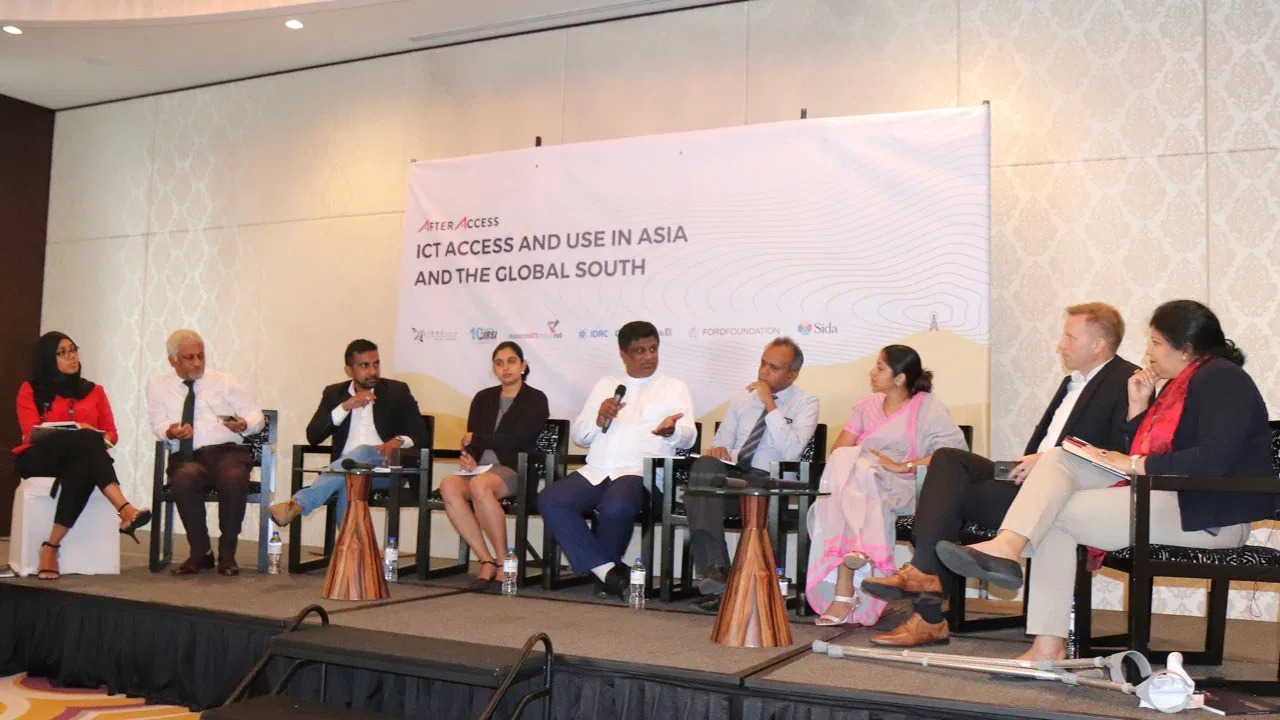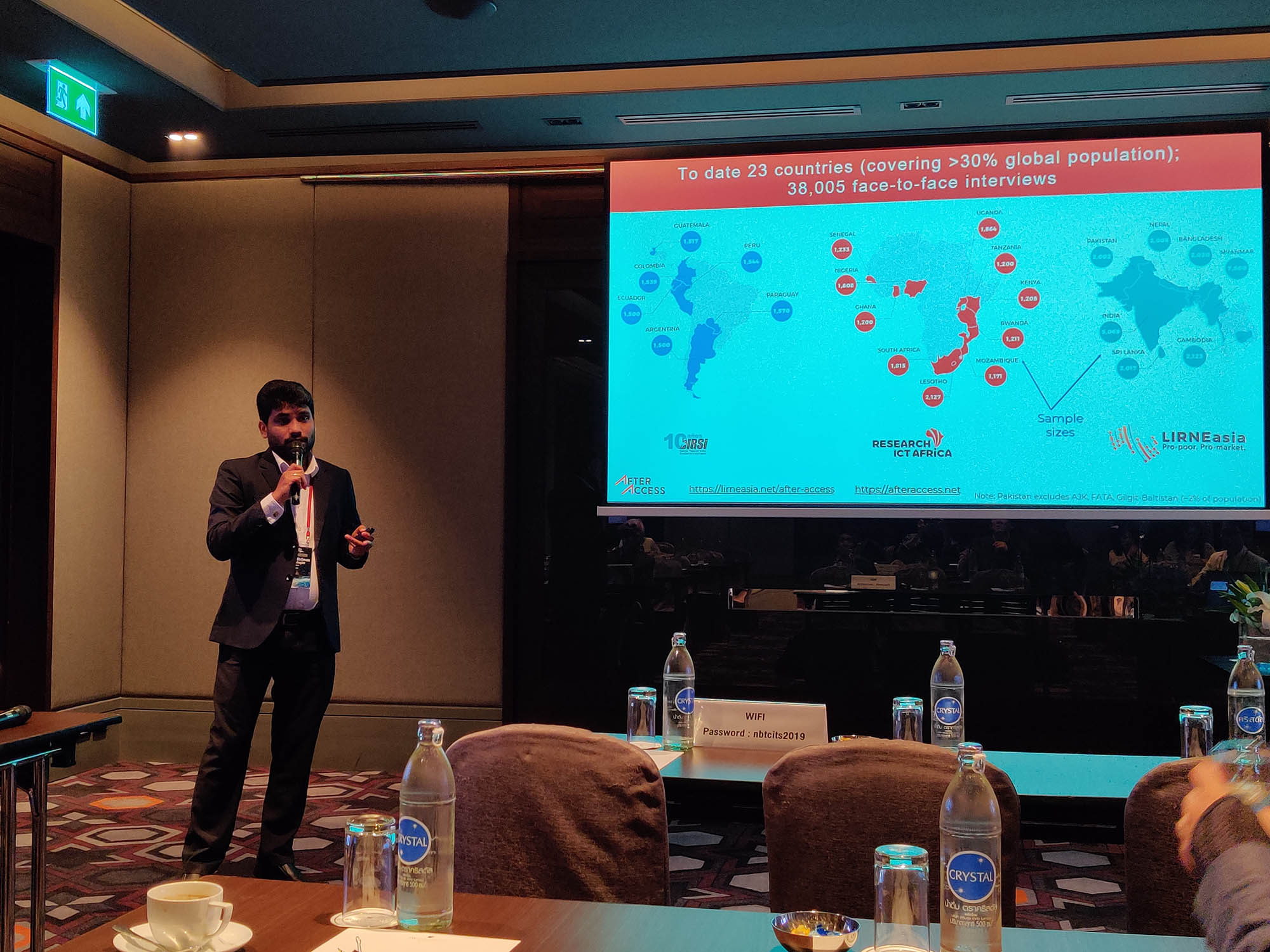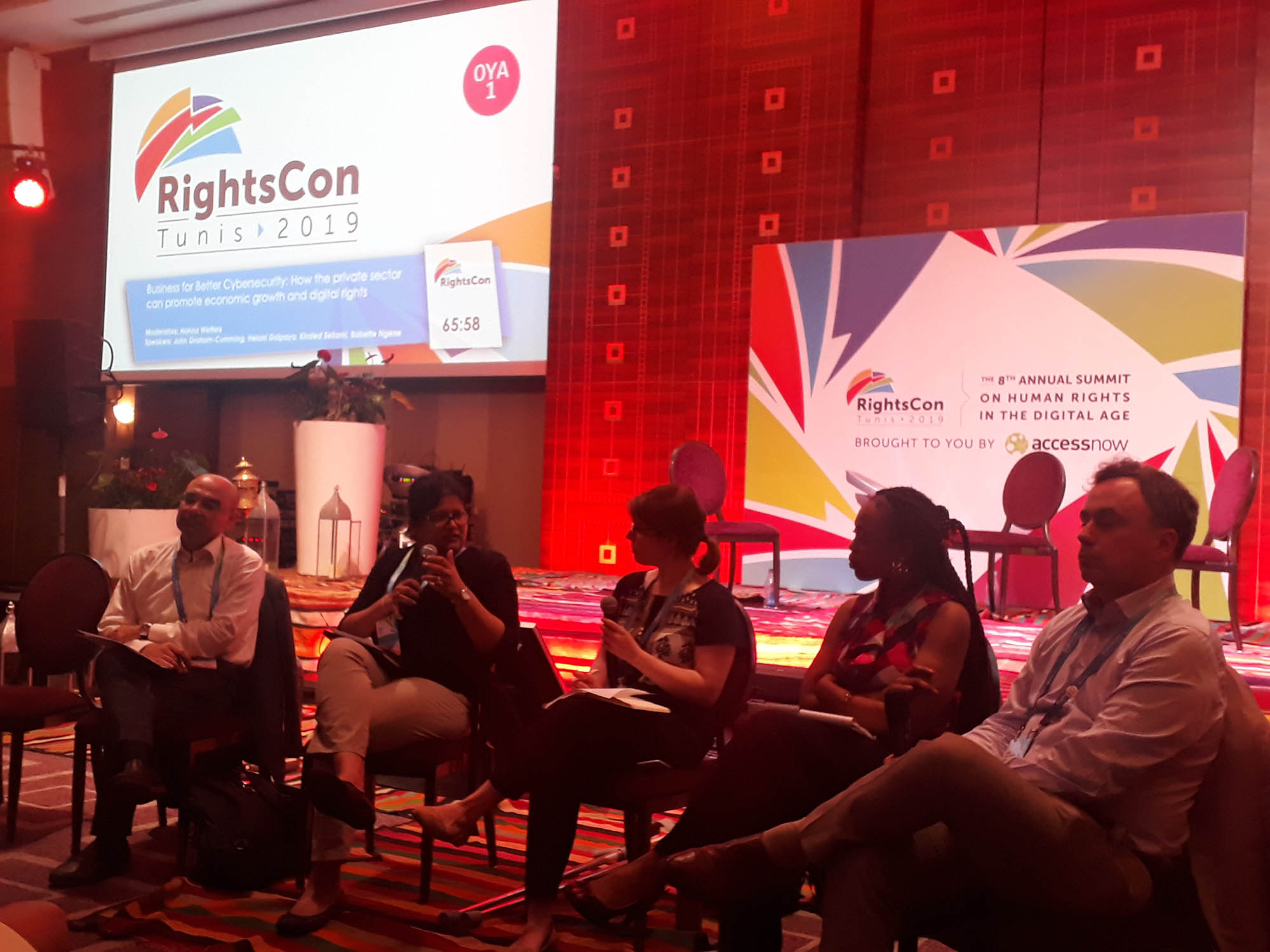AfterAccess

The full body of AfterAccess data is vast. 38,005 interviews conducted in 23 countries of the Global South to create what is currently the most comprehensive dataset on access to and use of mobile phones and the internet in the region. We just scratched the surface of the insights the data has to offer when we disseminated the top-level findings in each country. Now, we – and other like-minded researchers– have begun analyzing the data in more detail, and statistically modeling it to understand better what the data is telling us.
Out of these efforts came a paper on “Information sharing behavior on social media in the Asian Global South”, written by Ayesha and Tharaka, and presented at ITS in Bangkok, October 2019. The data was also presented at RightsCon in Tunis, June 2019, by Helani at sessions on “Decolonising Cyberpolicy: Developing a Cyberpolicy Framework Relevant to the Global South” and “Business for Better Cybersecurity: How the private sector can promote economic growth and digital rights”. Ayesha also spoke at RightsCon 2019, sharing AfterAccess findings at a workshop on “Designing a More Inclusive Digital Economy”
In November 2019, Tahani shared data on the gender gap at a panel on “Why IT Matters? Gender Digital Divides in Asia-Pacific” organized by the United Nations University Institute in Macau. The panel was a side-event to the Asia-Pacific Ministerial Conference on the Beijing+25 Review, held in Bangkok. Tahani also shared the gender gap data with the 2nd Physical Research Group Working Meeting of EQUALS@KAIST in South Korea, in December 2019.

An updated report, AfterAccess Asia (version 3.0), was launched alongside the dissemination of Sri Lanka-specific findings in Colombo. Conversation at the dissemination event centered on the social media blocks carried out by the Government of Sri Lanka earlier in the year (March 2019) following the Easter Sunday Attacks.
As with dissemination of the data in other countries in the region, the media really caught on to the data, questioned and wrote in-depth on issues we raised, repeatedly. Most encouragingly, the then Minister of ICT and Digital Infrastructure, Ajith P. Perera – who was also the Chief Guest at our dissemination event – dug into the data and published a number of policy-relevant opinion pieces based on our findings.

AfterAccess in Sri Lanka included two special components – the first on persons with disabilities, and the second on small and medium enterprises. The data on access to and use of ICTs by small and medium enterprises in Sri Lanka gave us two useful insights. First, SMEs that had relatively high use of ICTs for business had higher revenue, higher profit, more customers, a more diverse range of customers and suppliers, and were more often banked. Second, those SME owners who weren’t online said there was “no need” for them to use ICTs for business. We saw this as a lack of awareness among SMEs about the benefits of using ICTs.
The data was disseminated among the Sri Lanka Chamber of Small and Medium Industries, the Federation of Chambers of Commerce and Industry in Sri Lanka, as well as other national and regional chambers of commerce. Since the audience was diverse and geographically widespread, we chose to disseminate in the form of policy recommendation documents supplemented by an information leaflet. (More detail on the component on persons with disability is available here.)
COVID-19 hit soon after dissemination and changed the issue completely. Because of curfew imposed across the country starting on the 14th of March, businesses without the capacity to take orders using phones or the internet, ground to a halt. Awareness is no longer a problem. What we must now tackle on the SME front are issues of digital literacy (how does one set up an online channel for taking orders?), payment gateways (how are payments to be collected?) and analog complements such as delivery.
Since the pandemic and the resulting increase in dependency on digital solutions for everyday activities (more work from home, more e-learning, more e-commerce, need for contact tracing etc.), the AfterAccess data has become more relevant now than ever. We look forward to working deeper into the data to understand how Asia can respond and recover efficiently and effectively.